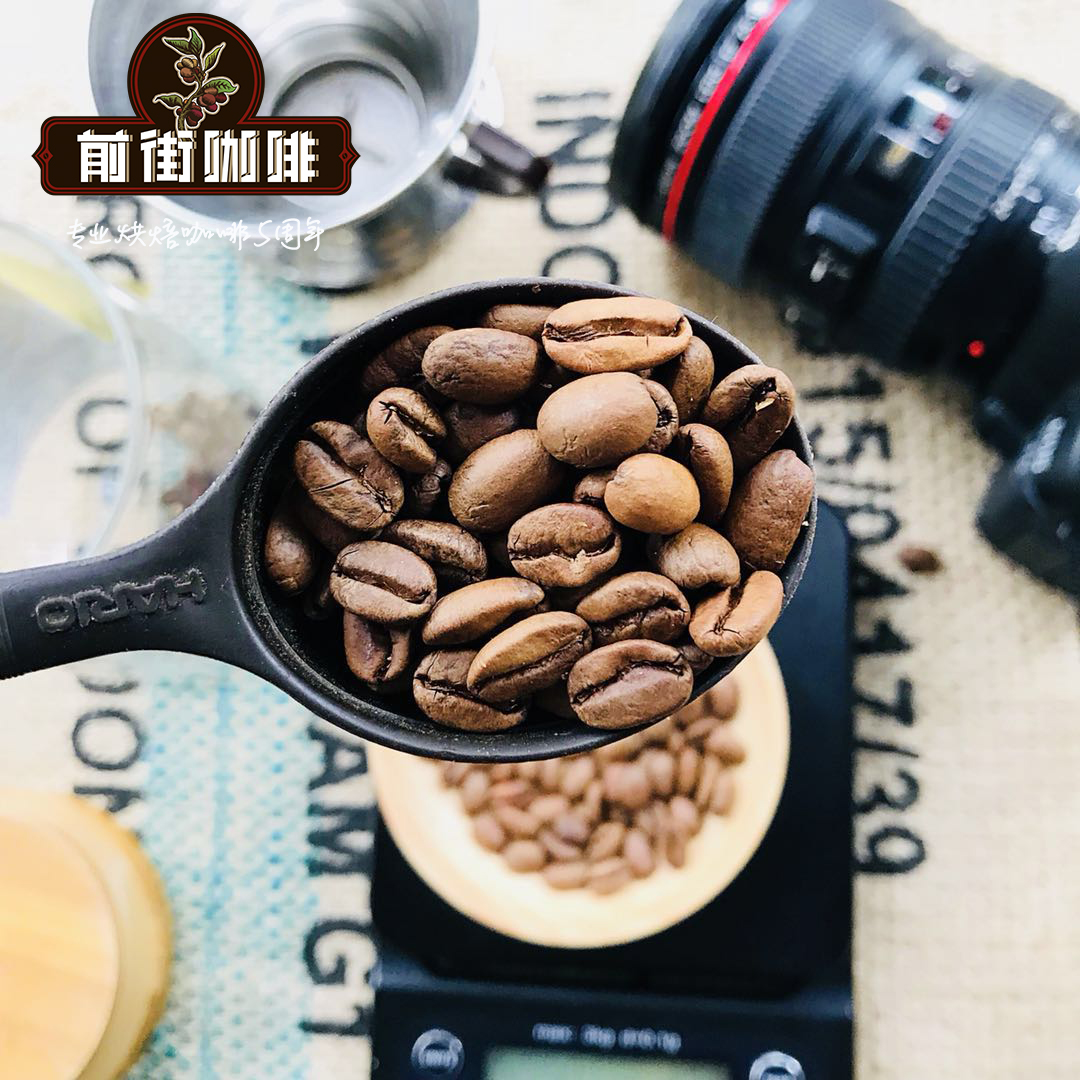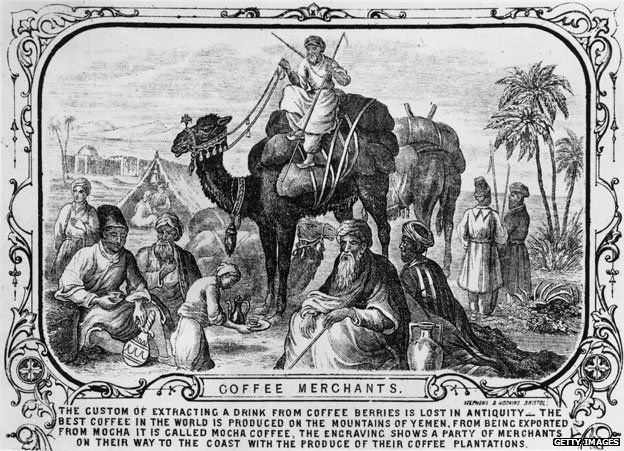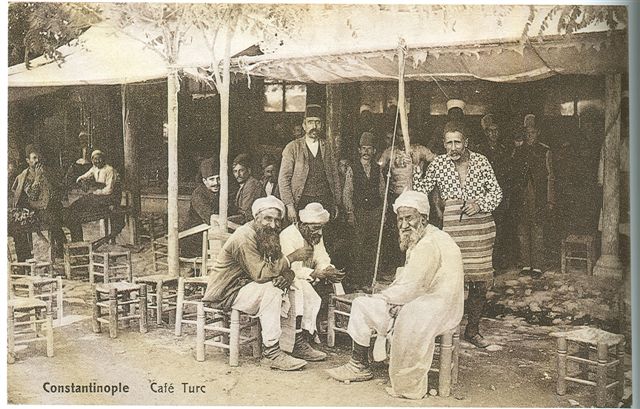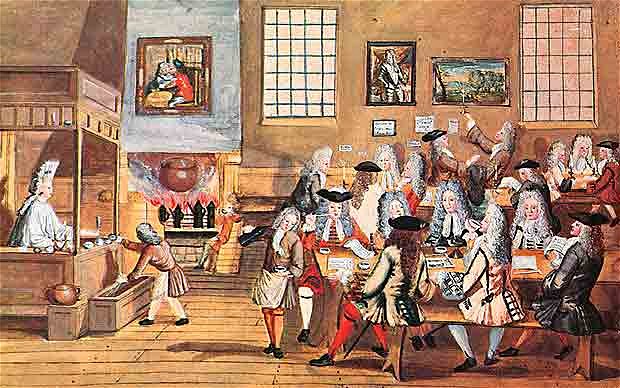Dangerous drinks: how Coffee creates a Culture of Resistance

Professional coffee knowledge exchange more coffee bean information please follow the coffee workshop (Wechat official account cafe_style)
Coffee as a "Drug"
David. In his book five hundred years of Addiction, David T. Courtwright tries to define "Drug" as a neutral concept: "addiction", which generally refers to all substances that can cause addiction or change a person's mental state, from Hard Drugs opium, marijuana, cocaine, amphetamine, alcohol, to weak (Soft Drugs) such as tobacco, cocoa, tea, coffee and even sugar.
All of them have played an important role in the process of human history, either because of their irritation to the human body, or because of their powerful political and economic interests, David Courtlett called it the spiritual stimulation revolution. Among the many addictions, coffee, alcohol and tobacco are the most widely used and have the greatest impact on human civilization and social structure, so they are called the "big three" of addiction, of which coffee is the first.
The unique stimulating effect of coffee makes it different from hallucinogenic drugs such as alcohol, marijuana, cocaine and other hallucinogenic drugs, especially among Muslims who abstain from alcohol because of doctrine. The trading, production and consumption patterns of coffee led to the emergence of cafes.
The earliest cafes appeared in the Middle East in the 16th century, then spread rapidly in the Muslim world, and were introduced into Britain and France in Europe in the 17th century. Habermas, a German scholar and an important representative of the Frankfurt School, believes that the emergence of cafes in Europe, especially in Britain, provides the best stage for information dissemination and public political discussion. thus forming a specific "public space" has become a cradle against autocratic rule and nurturing modern parliamentary democracy and freedom.
"it is said that the worst riots in history had to drink history's greatest rebels were said to have imbibed coffee before committing their heinous crimes before committing their evil crimes," said scholar Steve Pincus.
In the structural Transformation of the Public Domain by Jurgen Habermas, the author tries to define the public space as a specific space that is open to public participation and discussion without any power restriction. Such a space has three key characteristics:
First, it is open to the public to participate freely.
Second, equality, regardless of social status and origin, princes and peddlers can communicate on an equal footing here.
Third, tolerance, a space that allows all participants to discuss issues of all different backgrounds, values and beliefs.
Its concept originates from the civil assembly in ancient Greece, but the real public space was not formed until the 17th century, with the emergence of modern newspapers, representative councils, cafes and other factors. In the feudal society before that, messages were closed, so they did not have the conditions to form a public space.
However, the Arab scholar Krrababa believes that as early as the 16th century, when cafes appeared in the Ottoman Turkish Empire, public space and its culture of resistance to despotism had begun to take shape. On the one hand, the culture of consumer activities in cafes meets the three basic attributes of openness, equality and inclusiveness of public space. At the same time, the charm of coffee and cafes is almost irreplaceable in the prohibition Muslim world, and the huge demand creates a market momentum that makes people not hesitate to challenge the authority of the ruling authorities to meet their needs. Therefore, by tracing the history of the emergence and spread of cafes, we can sort out the role and mechanism of cafes in the resistance against autocracy.

The origin of coffee and cafes
The earliest and most widely cultivated coffee variety is Coffea arabica, Arabica coffee originated from Abyssinia, which is now Ethiopia in Africa. It was originally used for religious purposes, and the natives presented it as a sacred sacrifice to the gods.
The worldwide spread of coffee is mainly attributed to Arab businessmen. According to records, coffee was first introduced into the Arab world about 1450. At that time, the Arabs were in charge of trade in the Red Sea and the Indian Ocean, which was a bridge between East and West. The introduction of coffee quickly spread in the Arab world, including the Middle East, the Ottoman Empire and later Europe.
Scholars point out that Sufi (Sufi Muslims, a branch of Muslims) in Yemen are believed to be the first Arabs to drink coffee. They attach importance to the refreshing stimulating effect of coffee, believing that drinking coffee can make them better worship and maintain religious relations. Therefore, after completing the visit, they will pass on the same bowl and drink the coffee in the bowl regardless of men and women, in order to show their friendship and become a ceremony.
In other words, unlike today's economic motivation to use coffee to boost productivity, Yemen people at that time drank coffee for religious and social purposes. Coupled with the prohibition of alcohol in the Koran and the unique refreshing effect of coffee, it is widely accepted by Moose as the best substitute for alcohol. As a result, coffee quickly spread through the Cairo, Damascus and Ottoman empires in the 16th century and became part of their daily religious life.
Historians pointed out that because the early brewing of coffee required a large number of large utensils, which was not convenient to flow, it was necessary to have a place for fixed-point sale in order to carry out retail, which led to the emergence of coffeehouse. According to records, the earliest cafe was founded in Istanbul, the capital of the Ottoman Empire, in 1555 by two Liberian merchants who were also the first to introduce coffee from Egypt and Georgia to the Ottoman Empire.
Initially, as retailers of coffee beans, they needed a fixed place to put coffee-making utensils and show their potential customers how to make this fresh and fashionable drink correctly. But at that time, restaurants knew nothing about this, and there was no Tavern in the prohibition Muslim world, so they could only open their own doors and open a new place like a "cafe". Unexpectedly, it became an irreplaceable place of entertainment in the Muslim world and had a far-reaching impact on future generations.
The emergence of cafes in Istanbul, the imperial capital, has become a sanctuary under the autocratic monarchy at the foot of Sudan, an unexpected "public space" and place of entertainment and leisure for Muslims. At that time, the cafe was open only to men, and in that closed age of strict hierarchy, Muslim men regardless of social status, origin or occupation could meet here.
Scholars, soldiers, businessmen, craftsmen or the poor, high or low, as long as a cup of coffee in hand, can start a dialogue, or even discuss current politics, or even study the classics, or even academic discussion, or even poetry creation, or even chess and cards, gambling, song and dance, prostitutes, opium and other avant-garde underground activities that violate Islamic teachings or laws. In short, by the end of the 16th century, there were more than 600 cafes in Istanbul alone, and people's love for cafes could be described in a poem:
What is fascinating is not coffee or cafes.
What fascinates people is human feelings.
Coffee is just an excuse.

Karababa, an Arab scholar, pointed out that although Habermas believed that the ideal model of public space (Public Sphere) would not appear until the 18th century, cafes in the Ottoman Empire already had the prototype of public space because it conformed to the three basic characteristics of openness, equality and inclusiveness.
The Cafe of Constantinople
First of all, the cafes in the Ottoman Empire are relatively open and accessible to all men. And equal, regardless of religion, social status or occupation, from scholars to officials, guards to craftsmen, and even the poor can meet and communicate here, which was the only exception in that era of strict hierarchy. It is also inclusive because they can boldly discuss any topic, from scholarship to poetry, from religion to national politics. According to historical records, the imperial guards even criticized politics, vented discontent and brewed mutiny to challenge the autocratic authorities, thus becoming a major threat to the monarchy.
Although Habermas believes that the "rational subject" (rational subjects), that is, the bourgeoisie, and the free media in the modern sense are also necessary conditions for the formation of public space, because only they can rationally criticize politics and authorities, the cafes of the Ottoman era lack relevant elements. But Karababa believes that political satire performances, classic and academic discussions and criticisms, as well as religious discussions, which were popular as entertainment in cafes at that time, could also become critical public discussions, so there was public space.
So how do cafes breed a culture of resistance? He believes that it is caused by the conflict between consumers' demand for "free choice" (freedom of choice) for activities in cafes and the traditional religious values and social order maintained by autocratic authorities.
First of all, the cafes at that time offered a wide range of entertainment and leisure activities: reading, poetry, music, theatrical performances, gambling and even prostitutes or smoking opium, and the huge demand tempted Muslim men to bet their time in cafes, not mosques. Men gather here day and night to discuss current affairs, so that criticisms of autocratic authorities have become bolder.
On the other hand, orthodox Muslims and autocratic authorities, as conservative forces, interpret problems and establish order on the basis of traditional teachings. In their understanding, an ideal Muslim should work frugally but diligently to earn and maintain his family, and to be honest, not to allow greed to accumulate wealth, and to abide by Islamic teachings.
Therefore, the consumption activities in cafes are wasteful, immoral and illegal. They spend a lot of time fooling around in cafes, which is also undogmatic and ultimately blasphemous. The bold remarks in it are more regarded as a challenge to the ruling authorities and are even more intolerable.
Because of worries about this challenge, the ruling authorities have repeatedly tried to ban cafes, but the demand as consumers is too large, which is inextricably linked to the interests of cafes. In places such as Cairo, coffee is a common currency, so cafes are banned. The process of prohibition and anti-prohibition is a protracted tug-of-war, but it basically ends in the failure of autocratic authorities, which in a sense can be regarded as the triumph of free market pull over autocratic rule.

The first coffee shop in London was Jamaica Wine House, located in St Michael's Alley, which is still open today.
The cafe is in England.
Coffee was introduced to England by a Turkish businessman in the 17th century, and like the Sufi Muslims in Yemen, it was favored by the Puritans for its refreshing effect. It is reported that the first cafe appeared in Oxfordshire in 1650 and then in London in 1652 and has been very popular ever since. By the end of the 17th century, there were more than 3000 cafes in London alone.
These cafes are open to the public regardless of social status, occupation, gender or religion. Therefore, gentry, aristocracy and civilian businessmen are all mixed here. Basically, it is fashionable to read newspapers or pamphlet (a pamphlet on political commentary that can be seen as the forerunner of political commentary magazines) or socialize in cafes.
Why are cafes so popular in Britain? One reason is that the consumption in the cafe is cheap and more competitive than the Alehouse. Guests can spend the whole day by ordering a cup of coffee for a penny or two, compared with one cup after another in the pub until they get drunk. The refreshing effect of coffee was widely accepted by the Puritans, and the relaxed atmosphere became a meeting place for businessmen and politicians.
Illustrations in 2008, depicting men talking in a cafe
So how did cafes become Habermas's ideal model of public space? It is necessary to explain the background of the times first. Basically, Britain in the 17th century was a turbulent period, an era of the intersection of old and new forces, the decline of monarchy, liberalism and the rise of the emerging bourgeoisie.
Since Charles I came to power in 1625, the conflict between politics and religion, the struggle for power with Parliament, the 11-year tyranny of dissolving Parliament, and the refusal of Parliament to establish a constitutional monarchy and restrict monarchy resulted in two English civil wars from 1642 to 1649. Charles I lost the war and became the first British monarch to be sentenced and executed, and Britain entered a short period of republic.
Cromwell rose to be the Lord Protector until his death in 1658, when the old nobles and officers fought back, restoring the monarchy and welcoming Charles II back to the country. During the reign of Charles II, in order to meet the military expenditure of the three Anglo-Dutch wars, he clashed with Parliament again, which led to the substantial bankruptcy of the government for a year, the financial turmoil and the loss of government prestige.
During this period, the parliamentary two-party system formed by the Whigs Party, which represented the emerging bourgeoisie, and the Tories Party, which represented the royalist forces, initially took shape. Later, the two parties joined forces, launched a glorious revolution to oust King James II in 1688, supported Mary II and William III to rule England together, and passed the Bill of Rights in 1689, establishing the principle of "parliamentary supremacy". According to the principle of restricting royal power and protecting civil rights, Britain officially entered the era of constitutional monarchy and became the first constitutional monarchy in modern times. It is in this ever-changing era that cafes appear in Britain and play a unique role in promoting the development of free thinking and civil rights.
Habermas believed that in the era of feudal rule, the news was closed and the public could not know it. As a result, politics was limited to the secret room politics of the palace, manipulated between kings and nobles.
However, after the civil war and restoration, the royal power declined, the reputation of the royal family was tarnished, the traditional feudal aristocratic forces disintegrated, the modern parliament rose, and the news was no longer closed, so it attracted more and more public attention. And the cafe became the most ideal news distribution center at that time.
First of all, the political Daily (Political Journals), the first newspaper in line with the modern meaning, appeared in this era, from the initial weekly publication to the daily publication half a century later. At the same time, pamphlets with political comments are popular, and cafes are their main retail and consumer outlets.
Compared with continental Europe, such as France at that time, the British government's censorship of newspapers was relatively weak. Especially after the glorious revolution, the royal power and the feudal aristocracy disappeared, so that in 1695, political censorship was officially abolished, giving the British media the unique freedom of speech in Europe at that time.
Habermas believes that this is a milestone in the establishment of a public space for public political discussion, which means that rational and free public discussion can be presented to the public through newspapers, making it a public forum. In addition, with the development of capitalism and the rise of modern government and parliamentary politics, a new class "bourgeoisie" has also stepped onto the political stage and become the mainstream of the "Public" and the largest readership of free media.
Brian Cowan, a scholar, pointed out that in Britain after the restoration of the dynasty, the public had a huge demand for news, so providing newspapers for guests to read became a means for cafes to attract guests. As a result, scholars, politicians, officials, and journalists gathered in cafes to read newspapers, discuss current politics, and collect or distribute intelligence.
"all of a sudden, it was as if everyone had become a politician," it was remembered at that time. Habermas agrees with this, believing that newspapers and various pamphlets have become an important part of the cafe and are the main content of the guests' discussion. Officials, politicians and scholars of liberals and royalists all have their own fixed cafes as discussion points and form intelligence networks. And these networks are basically maintained by newspapers.
Like the Ottoman Empire, the heated political comments and criticism in British cafes touched the nerves of the British authorities. King Charles II and James II of England both tried to curb political discussion in the cafe, but they came back in vain, just like the Sultan of the Ottoman Empire. The demand for cafes and news is so great that the declining monarchy simply cannot compete with the pull of the free market.
Important Notice :
前街咖啡 FrontStreet Coffee has moved to new addredd:
FrontStreet Coffee Address: 315,Donghua East Road,GuangZhou
Tel:020 38364473
- Prev

Talk about the current situation of coffee in China
Professional coffee knowledge exchange more coffee bean information Please follow the coffee workshop (Wechat official account cafe_style) Coffee shop, home, office, one cup of coffee per person has become a common scenery in eastern China. With the rapid development of economy, more and more people drink coffee. In addition to providing convenient take-out, stable quality of international coffee brands, focusing on the drinking environment and shop owners
- Next

The coffee grown in Guangdong is about to drink Little Katim, which unexpectedly makes the villagers have a "sweet" day.
Professional coffee knowledge exchange more coffee bean information please follow Coffee Workshop (Wechat official account cafe_style) Zhen an Minqiang Village, Yunan District, Yunfu City, Guangdong Province, is an old revolutionary base village, and it is also a key village for poverty alleviation and development in the second round. In order to help villagers get rid of poverty, Shan Tau Village introduced coffee as early as 2004 and successfully planted it. In 2013, it was officially expanded and established.
Related
- Can lightly roasted coffee beans be used to extract espresso? How finely should you grind high-quality coffee beans to make Italian latte?
- What is the difference between the world's top rose summer coffee and Yejia Shefi? What are the flavor characteristics of Yega Shefi coffee and Panama rose summer?
- The ceremony is full! Starbucks starts to cut the ribbon at a complimentary coffee station?!
- A whole Michelin meal?! Lucky launches the new "Small Butter Apple Crispy Latte"
- Three tips for adjusting espresso on rainy days! Quickly find the right water temperature, powder, and grinding ratio for espresso!
- How much hot water does it take to brew hanging ear coffee? How does it taste best? Can hot water from the water dispenser be used to make ear drip coffee?
- What grade does Jamaica Blue Mountain No. 1 coffee belong to and how to drink it better? What is the highest grade of Blue Mountain coffee for coffee aristocrats?
- What are the flavor characteristics of the world-famous coffee Blue Mountain No. 1 Golden Mantelin? What are the characteristics of deep-roasted bitter coffee?
- Can I make coffee a second time in an Italian hand-brewed mocha pot? Why can't coffee be brewed several times like tea leaves?
- Hand-brewed coffee flows with a knife and a tornado. How to brew it? What is the proportion of grinding water and water temperature divided into?

